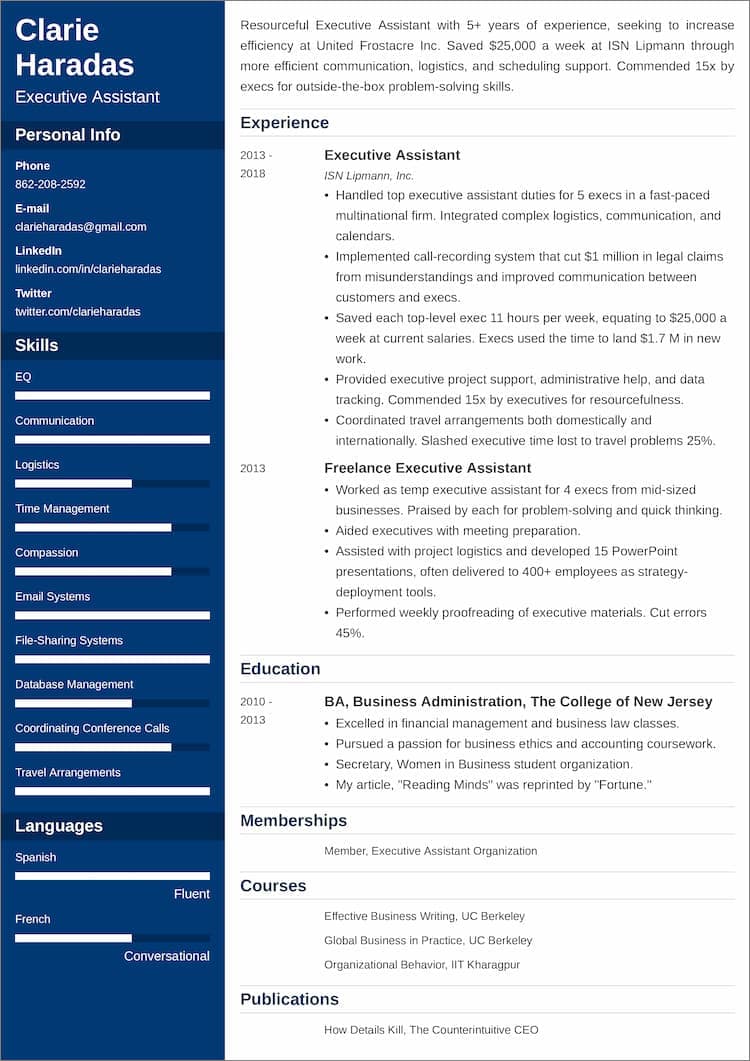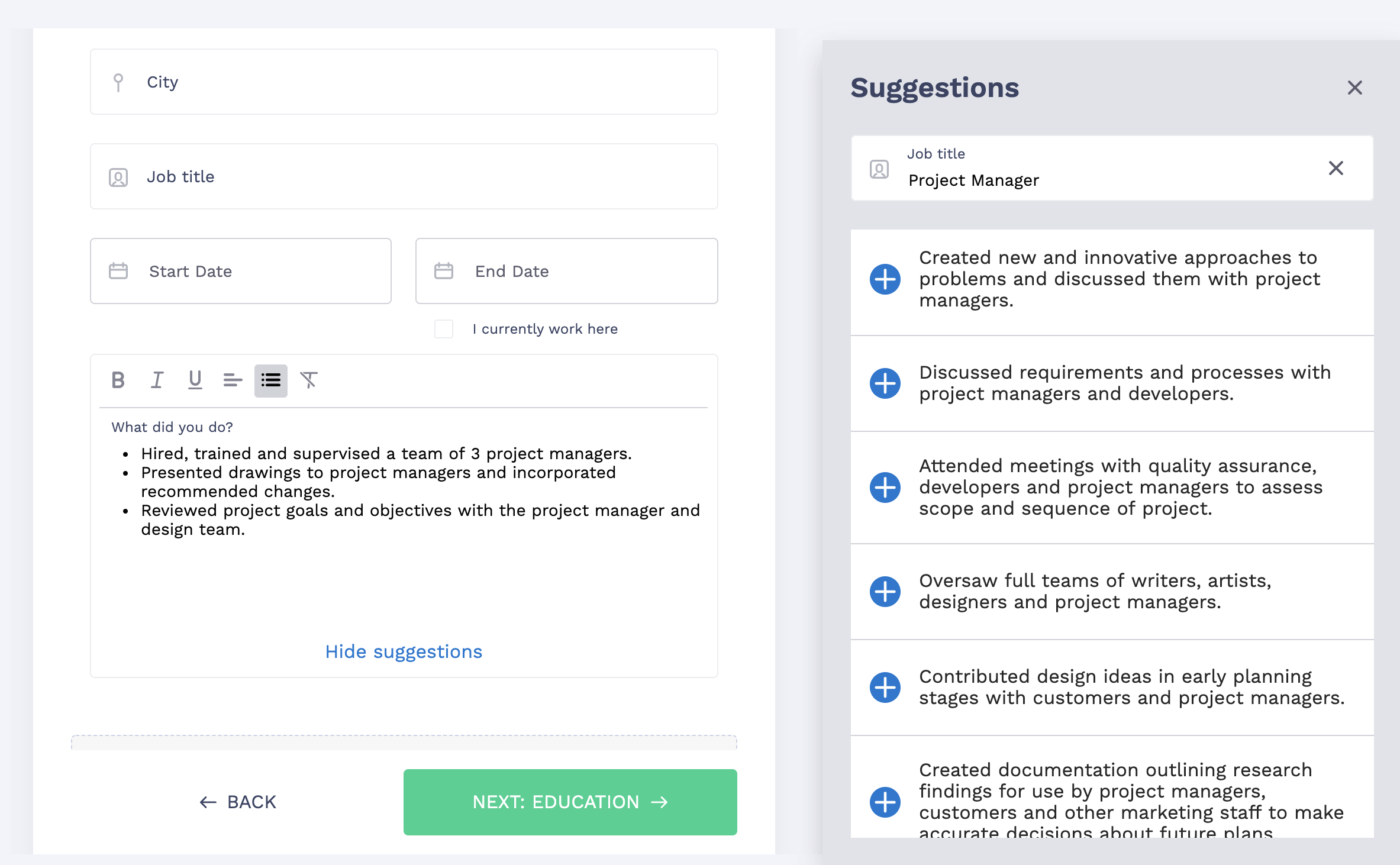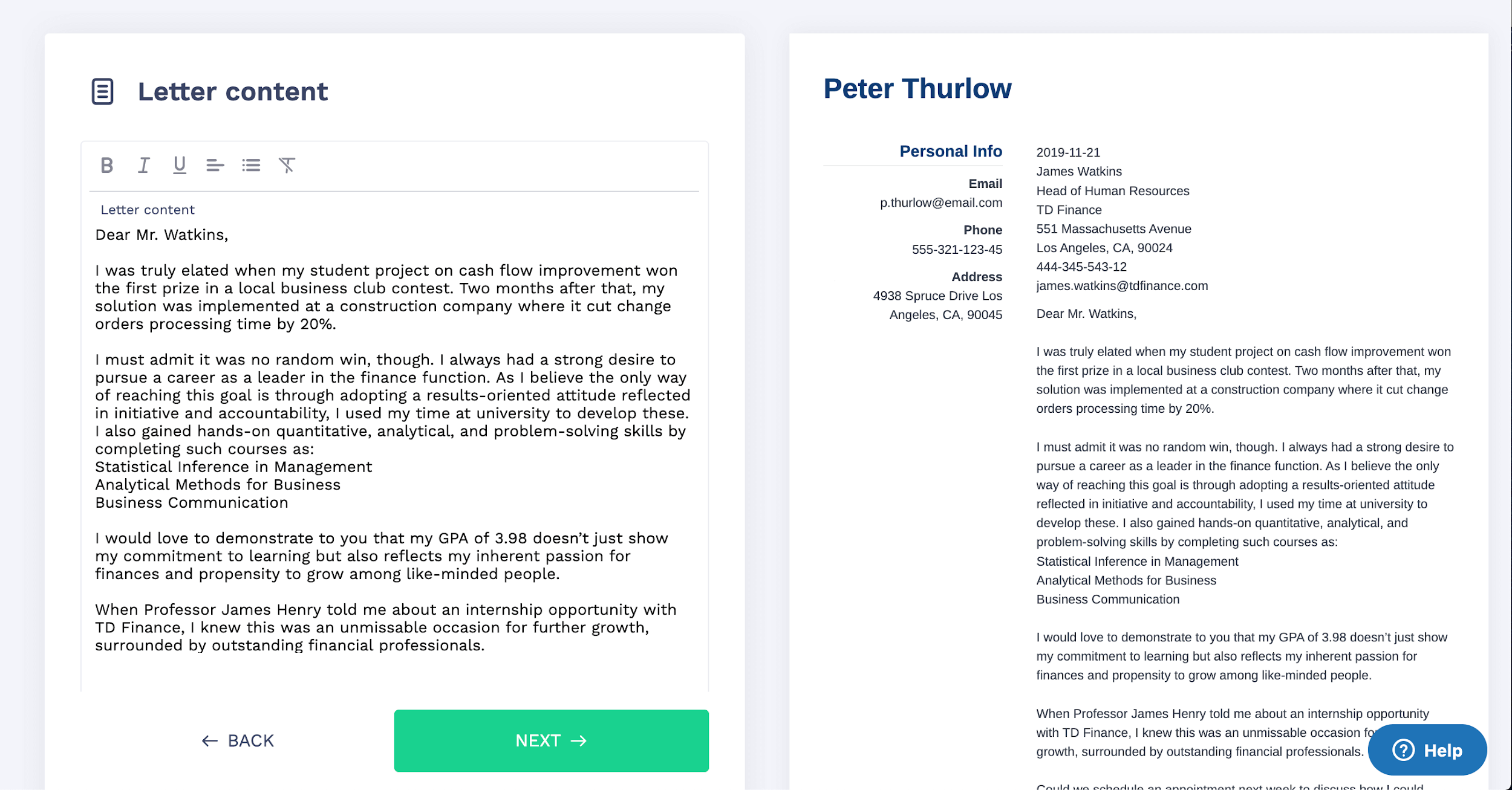
Skills You Need for Your Resume to Secure a Job
Wondering what good skills to put on your resume? Wonder no more! You’ll find a list of the right skills for your resume, regardless of your job or experience.

Olga Ber
Career Expert
You find the perfect job opportunity and start writing your resume... and then you realize that if you were to highlight all your past positions and experiences, your resume would be 5 pages long. So you end up stuck with a severe case of writer's block.
But here's our miracle cure. You’re just one scroll away from finding out how far back your resume should go. Really.
In this article:
Save hours of work and get a job-winning resume like this. Try our resume builder with 20+ resume templates and create your resume now.

What users say about ResumeLab:
I had an interview yesterday and the first thing they said on the phone was: “Wow! I love your resume.”
Patrick
I love the variety of templates. Good job guys, keep up the good work!
Dylan
My previous resume was really weak and I used to spend hours adjusting it in Word. Now, I can introduce any changes within minutes. Absolutely wonderful!
George
Looking for resume writing tips for specific jobs? Check out these guides:
Experts recommend a resume should go about 10–15 years back, depending on your experience level. Employers tend to prioritize your most recent work history. Your newer achievements are a better indicator of your current skills and qualifications.
There is no doubt that the work history section is the most important part of every good resume, however, it’s not always a great idea to go back to 1983 on your experience history…
Relevance is key here. So, let’s take a better look at different experience levels first:
If you’re writing a resume with no professional experience, it may seem like you have little to nothing up your sleeve.
Fortunately, there’s nothing to worry about, because you can use whatever experience you do have to your advantage. Make sure to:
Education
BS Computer Science, University of Houston
2017–2021
Game Development & Design
Writing a resume for an entry-level job can be overwhelming, especially if you’re applying for your first full-time paid job.
If you have very little information to include on your resume, leverage your academic experience and other part-time or summer job to the max. Remember to:
Volunteer Jobs
When applying for a mid-level position, listing up to 10 years of experience is the best option:
Related Experience
Accounting Assistant
Bakeville, Newark, NJ
2011–2020
Other Experience
Retail Associate
ALDO Shoes, Newark, NJ
2008–2011
Expert Hint: In order to make your resume targeted and more relevant to the position, use keywords and phrases from the job posting. This means you'll be submitting a so-called ATS resume, which increases your chances of passing the initial screening.
The ResumeLab builder is more than looks. Get specific content to boost your chances of getting the job. Add job descriptions, bullet points, and skills. Easy. Improve your resume in our resume builder now.

Nail it all with a splash of color, choose a clean font, and highlight your skills in just a few clicks. You're the perfect candidate, and we'll prove it. Use our resume builder now.
Candidates applying for senior or executive positions can go back as far back as 15 years when listing entries in their resume’s work experience section.
However, remember that recruiters are only interested in relevant work experience, so if you’re no spring chicken, ditch listing jobs from decades ago. When writing a resume for an executive job:
Experience
Business Development Executive
TechPark, Austin, TX
2012–2021
Business Development Executive
Infiwave, Houston, TX
2007–2012
Expert Hint: If you’re worried about being overqualified for a job, don’t be. Many recruiters, nowadays, look upon overqualified candidates as an asset, as they believe that a candidate who has the right combination of hard and soft skills can elevate the team and the company to better performance.
Academic CVs are governed by their own laws. The curriculum vitae is a comprehensive statement of educational background, teaching, and research experience, and it can even go back as far as 15 to 20 years.
Include these sections:
You know your resume needs to be both concise and to the point, but you still might not know exactly how many things to put on your resume. And to be honest—there is no definitive answer to the question of how many jobs to include.
There are, however, several guidelines you can follow that will help you make sure that your job history section provides enough information without going into too much insignificant detail.
So you have been in the job market for quite some time now, but have worked in several different industries. To make your experience pop, plan two sections for your work history, and name them 'related experience' and 'other work experience'.
This way, you’ll be able to get the recruiter to focus on the most important facts of your professional history, but still giving them all the other significant info that makes you an excellent candidate.
Unless you’re currently a college student, or under the age of 20, listing your high school accomplishments and extracurricular activities doesn’t make any sense.
There is, however, one exception: if you have not studied beyond high school, you can include the name of your school and the date of your graduation in your resume’s education section.
If you are looking for a graphic design job, focus on the jobs that are most likely to make you stand out as a prospective employee.
Your most recent creative gigs will mean the most to recruiters. Don't waste space describing all of your dog walking or bartending jobs you've had while in high school. Remember, unless you have more than 15 years of experience, it’s best if your resume fits on one page.
The work experience section plays a crucial role in your resume. Anyone applying for a job should carefully formulate their previous job experiences and present it professionally in the reverse chronological resume order.
If you can create a concise, informative, and relevant work history list, the hiring manager reading your resume can gain valuable insight into your capabilities. Plus, they’ll also be impressed with your level of organization and professionalism.
The two most important things to consider when writing your resume are relevance and clarity. Recruiters and employers should be able to quickly scan your resume and see an easy-to-read, well-organized list of your work history and skills.
If you can properly format your resume in a way that lists your most essential qualifications towards the top, you are more likely to land the interview.
Double your impact with a matching resume and cover letter combo. Use our cover letter generator and make your application documents pop out.

Want to try a different look? There's 21 more. A single click will give your document a total makeover. Pick a cover letter template here.
As a jobseeker, you want to present yourself as the most qualified candidate for the position for which you are applying. Nevertheless, including irrelevant information on your professional resume will do more harm than good. Because when it comes to resumes, the “less is more” rule applies on every level. Make sure your resume includes only information related to your career goals.
Thanks for reading! Still not sure how far back your resume should go? Maybe you have some tips of your own to share? Let us know in the comments!
At ResumeLab, quality is at the crux of our values, supporting our commitment to delivering top-notch career resources. The editorial team of career experts carefully reviews every article in accordance with editorial guidelines, ensuring the high quality and reliability of our content. We actively conduct original research, shedding light on the job market's intricacies and earning recognition from numerous influential news outlets. Our dedication to delivering expert career advice attracts millions of readers to our blog each year.

Wondering what good skills to put on your resume? Wonder no more! You’ll find a list of the right skills for your resume, regardless of your job or experience.

Olga Ber
Career Expert

Your resume is ready and you’re about to hit that “send” button. One last look and… you’ve realized your address is missing. Oh no! Or wait… do you actually need it at all?

Maciej Duszynski, CPRW
Certified Professional Resume Writer, Career Expert

Trying to combine creativity with professionalism? That’s not an easy job. Fortunately, these creative resume templates are here to help.

Mariusz Wawrzyniak
Career Expert